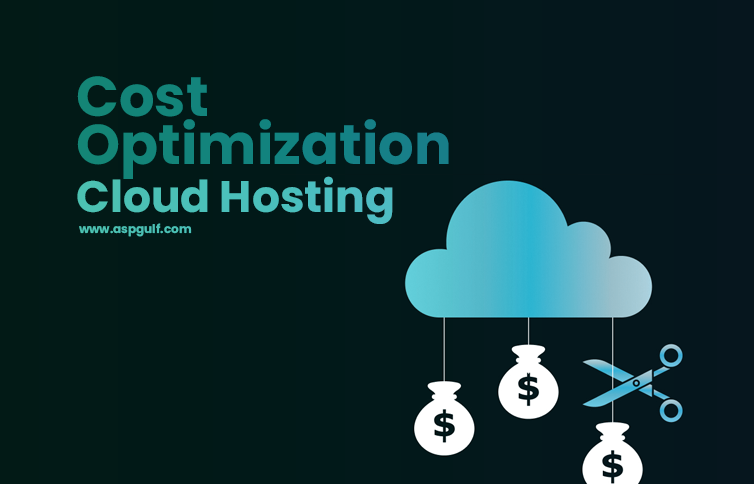Introduction
In today’s fast-paced digital world, businesses are constantly seeking ways to streamline their operations, reduce costs, and stay ahead of the competition. One technology that has emerged as a powerful solution to these challenges is public cloud computing. As an IT professional, IT manager, procurement specialist, or business owner, you’ve likely heard about the public cloud, but you may be wondering what specific benefits it can bring to your organization. In this comprehensive guide, we’ll explore the numerous advantages of public cloud computing and how it’s revolutionizing the way businesses operate.

Cloud Hosting
Cloud Hosting – Scalable, Secure, and Cost-Effective! Get Started Today!
What is Public Cloud Computing?
Before we dive into the advantages, let’s briefly define what we mean by public cloud computing. In simple terms, public cloud refers to computing services offered by third-party providers over the public internet. These services are available to anyone who wants to use or purchase them, and they may be free or sold on-demand. The public cloud provider manages all hardware, software, and other supporting infrastructure.
Now that we have a basic understanding, let’s explore the many advantages of public cloud computing that make it an attractive option for businesses of all sizes.
Cost Savings: A Major Advantage of Public Cloud
One of the most significant advantages of public cloud computing is the potential for substantial cost savings. Here’s how public cloud can help your business reduce expenses:
Reduced Capital Expenditure
- Eliminates the need for large upfront investments in hardware and infrastructure
- Allows businesses to shift from capital expenditure (CapEx) to operational expenditure (OpEx)
- Frees up capital for other strategic investments
Pay-as-You-Go Model
- Offers flexibility to pay only for the resources you use
- Allows for easy scaling up or down based on demand
- Helps optimize cloud hosting costs by avoiding over-provisioning of resources
Lower Maintenance Costs
- Cloud server hosting providers handle maintenance, updates, and upgrades
- Reduces the need for in-house IT staff dedicated to infrastructure management
- Minimizes downtime and associated costs
“The public cloud’s pay-as-you-go model allows businesses to be more agile and responsive to changing market conditions without breaking the bank.”
Scalability and Flexibility: Adapting to Your Business Needs
Another major advantage of public cloud computing is its unparalleled scalability and flexibility. This benefit is particularly valuable in today’s dynamic business environment.
Rapid Scaling
- Easily increase or decrease computing resources based on demand
- Accommodate sudden spikes in traffic or workload without service interruptions
- Support business growth without significant infrastructure investments
Global Reach
- Access cloud resources from anywhere in the world
- Expand into new markets quickly without building new data centers
- Improve application performance for users in different geographic locations
Resource Optimization
- Allocate resources more efficiently across different projects or departments
- Quickly provision new environments for testing and development
- Adapt to seasonal fluctuations in demand without long-term commitments
Enhanced Security: Protecting Your Data in the Cloud
Contrary to what some might believe, public cloud computing can actually enhance your organization’s security posture. Here’s how:
Expert Security Teams
- Cloud providers employ dedicated security professionals
- Benefit from continuous monitoring and threat detection
- Access to state-of-the-art security technologies and practices
Regular Updates and Patches
- Providers ensure systems are always up-to-date with the latest security patches
- Reduces the risk of vulnerabilities being exploited
- Frees up your IT team to focus on other critical tasks
Data Encryption
- Advanced encryption techniques protect data in transit and at rest
- Multiple layers of security, including firewalls and intrusion detection systems
- Compliance with industry-specific security standards and regulations
“Public cloud providers often have more resources and expertise dedicated to security than many individual businesses can afford on their own.”
Disaster Recovery and Business Continuity
One of the lesser-known advantages of public cloud computing is its ability to significantly improve disaster recovery and business continuity plans.
Automatic Backups
- Regular, automated backups of your data and applications
- Reduce the risk of data loss due to hardware failures or human error
- Easily restore systems to a previous state if needed
Geographically Distributed Data Centers
- Data is stored across multiple locations for redundancy
- Minimizes the impact of natural disasters or localized outages
- Ensures business continuity even in worst-case scenarios
Faster Recovery Times
- Quickly spin up new instances in case of failures
- Reduce downtime and associated costs
- Improve overall business resilience
Collaboration and Productivity Boost
Public cloud computing can have a significant positive impact on collaboration and productivity within your organization.
Centralized Data Storage
- Access files and applications from anywhere, on any device
- Facilitates remote work and distributed teams
- Ensures everyone is working with the most up-to-date information
Real-Time Collaboration
- Multiple users can work on the same document simultaneously
- Improves communication and reduces version control issues
- Increases overall team efficiency and productivity
Integration with Productivity Tools
- Seamlessly integrate with popular productivity suites like Office 365 or Google Workspace
- Access a wide range of cloud-based applications and services
- Customize your cloud environment to suit your specific business needs
Innovation and Competitive Advantage
Adopting public cloud computing can give your business a significant edge in terms of innovation and competitiveness.
Access to Cutting-Edge Technologies
- Leverage advanced technologies like artificial intelligence and machine learning
- Experiment with new tools and services without large upfront investments
- Stay ahead of the curve in your industry
Faster Time-to-Market
- Reduce development cycles with cloud-based development and testing environments
- Quickly deploy new applications and services
- Respond faster to market changes and customer needs
Focus on Core Competencies
- Outsource infrastructure management to cloud providers
- Allocate more resources to strategic initiatives and innovation
- Improve overall business agility and competitiveness
“The public cloud empowers businesses to innovate faster and more cost-effectively than ever before.”
Environmental Benefits
An often-overlooked advantage of public cloud computing is its potential for environmental benefits.
Energy Efficiency
- Cloud providers optimize their data centers for energy efficiency
- Reduce overall energy consumption compared to on-premises solutions
- Lower carbon footprint for your organization
Resource Sharing
- Multi-tenant architecture allows for more efficient use of computing resources
- Reduces the need for individual businesses to maintain underutilized hardware
- Contributes to overall reduction in e-waste
Support for Sustainability Initiatives
- Many cloud providers are committed to using renewable energy sources
- Align your business with environmentally responsible practices
- Contribute to your organization’s sustainability goals
Challenges and Considerations
While the advantages of public cloud computing are numerous, it’s important to be aware of potential challenges:
Data Privacy and Compliance
- Ensure your cloud provider complies with relevant regulations (e.g., GDPR, HIPAA)
- Understand your responsibilities in the shared responsibility model
- Implement proper data governance policies
Vendor Lock-In
- Be aware of potential difficulties in migrating between cloud providers
- Consider multi-cloud or hybrid cloud strategies to mitigate risk
- Carefully evaluate long-term costs and commitments
Internet Dependency
- Reliable internet connection is crucial for accessing cloud services
- Have contingency plans for internet outages
- Consider hybrid solutions for critical applications
Conclusion: Embracing the Public Cloud Advantage
As we’ve explored in this comprehensive guide, the advantages of public cloud computing are vast and varied. From significant cost savings and enhanced scalability to improved security and disaster recovery capabilities, the public cloud offers a wealth of benefits for businesses of all sizes.
For IT professionals, IT managers, procurement specialists, and business owners, understanding these advantages is crucial in making informed decisions about your organization’s technology infrastructure. While challenges exist, the potential for innovation, cost-effectiveness, and competitive advantage makes public cloud computing a compelling option for many businesses.
As you consider your cloud strategy, remember that the journey to the cloud is not one-size-fits-all. Take the time to assess your specific needs, evaluate different providers, and develop a plan that aligns with your business goals. With careful planning and implementation, the public cloud can be a powerful tool to drive your business forward in the digital age.
Are you ready to harness the advantages of public cloud computing for your organization? The future of business is in the cloud, and the time to act is now.

Power of Private Cloud
Explore secure, scalable, and customizable solutions with private cloud. Take control of your IT infrastructure and elevate your business operations today!
If you’re considering a more tailored cloud solution, private cloud computing offers enhanced security, control, and customization. Stay tuned for our next blog on the Advantages of Private Cloud Computing or reach out to us to explore the best cloud strategy for your business.



